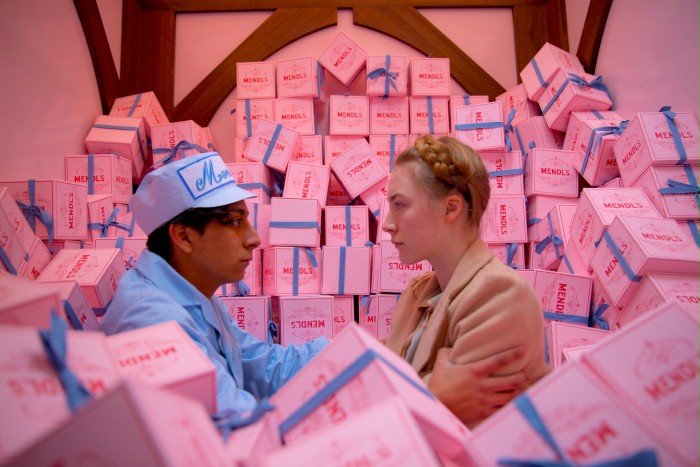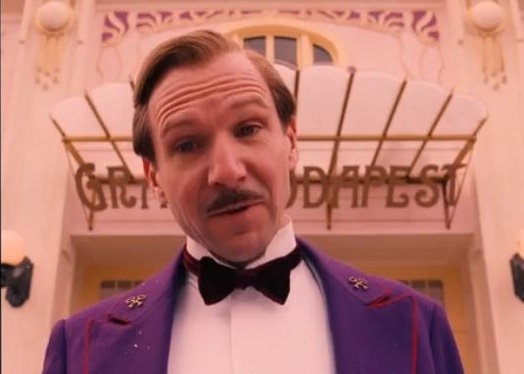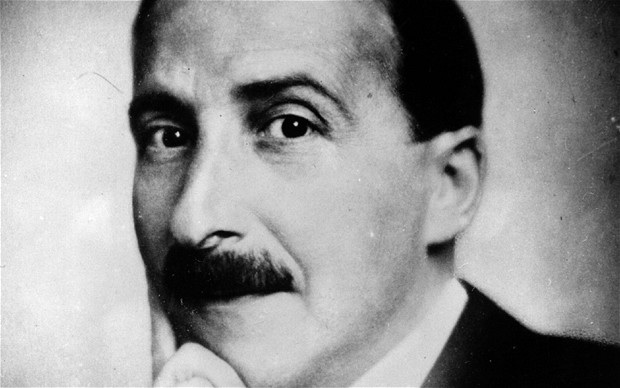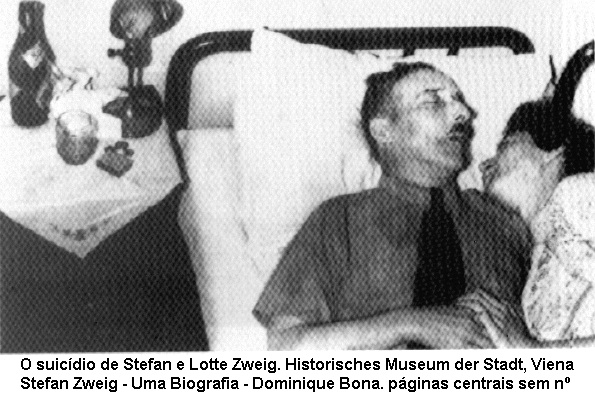As always with a Wes Anderson film, The Grand Budapest Hotel has delighted some with its visual confections others while others have complained of a surfeit of cinematic “cake.” But just beneath icing of this one is a tart undertone stemming from the auteur’s recent discovery of Austrian novelist Stefan Zweig (1881-1942), less for his romantic prose than his personal appearance and untimely end. Some aspects of this run quite deep. Others merely brush the skin.
Consider for starters the way his lead Ralph Fiennes
is made to so strongly resembles Zweig.
Fiennes plays “Gustave H” the imposing Major Domo of the entitled hotel which resides in the mythical alpine country of “Zubrowka” (similar in some respects to Nabokov’s “Zembla” in Pale Fire, but without aristocratic pretensions. Anderson’s story follows the path of many of his previous films in that it centers of a father-son relationship between two non-blood-related parties—here being “Gustave H” and his “Lobby Boy,” a foreign refugee named Zero Mustapha (Tony Revolori). There are of course many complications and an overall structure of stories-within-stories remindful at times of Has’ The Saragossa Manuscript.
While Anderson is scarcely indifferent to tragedy, e.g. Gene Hackman’s death in The Royal Tenenbaums and Seymour Cassel devoured by a shark in The Life Aquatic, he tends to keep it off screen. The same goes here as the leading character’s demise is noted so casually in passing at the film’s end that an unwary viewer might well overlook it entirely. It’s doubtful the death of the real Stefan Zweig—who on the run from the Nazis went to Brazil where still fearful of Hitler’s wrath he and his wife committed suicide.
He did however make sure to evoke the Palácio Quitandinha, the luxury hotel that dominated the city where they met their end.
Lovingly replicating it in his fictional establishment:
Still for all his efforts it’s not Zweig that Anderson evokes most strongly but rather Max Ophüls in his famous adaptation of a Stefan Zweig story, Letter From an Unknown Woman.
Very Wes Anderson, don’t you think?









